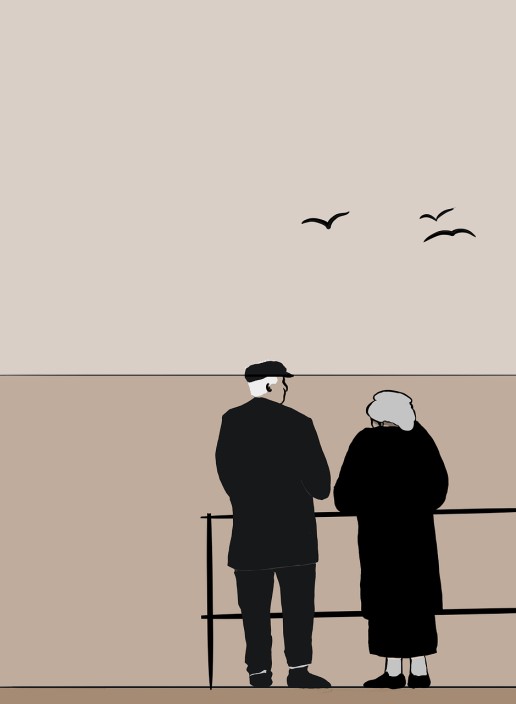
Here are some book club questions for A Man Called Ove by Fredrik Backman. While some are general questions that may be used as a cue for readers to respond to, we have also presented a list of specific questions from Demon Copperhead along with responses to the same.
Book Club Questions for A Man Called Ove
Questions for Discussion
- What is the significance of Ove’s relationship with the cat he adopts? How does the cat allow him to express emotions he might struggle to convey otherwise?
- During Ove and Sonja’s trip to Spain, Ove behaves quite differently from his usual self. How does his behavior as a “hero” compare to his character in the rest of the book? Is it a glimpse of his true personality?
- Parvaneh’s contrasting personality manages to break Ove out of his shell. How does her bold and extroverted attitude, though sometimes rude, ultimately help him?
- Ove values usefulness and purpose in things. How does this perspective clash with his belief that he’s become useless? What eventually convinces him otherwise?
- The story highlights the importance of neighbors and community. How does Ove’s relationship with his neighbors evolve, and what role does community play in his life?
A Man Called Ove | Question & Answers
- A Man Called Ove opens with the memorable line: “Ove is fifty-nine.” Bring out the significance of the opening line of the book.
At first glance, the opening line appears to be a straightforward introduction of the protagonist’s age, but it holds deeper meaning, the simplicity of the statement reflects Ove’s own frank and no-nonsense personality. He is a man of routines and principles valuing precision and clarity, and this concise declaration aligns perfectly with his character mirroring his own way of thinking.
Furthermore, the opening line serves as a gentle invitation for readers to explore the life of a man at the cusp of his sixties, most often the age at which people retire. It hints at the idea that Ove’s age may play a significant role in the narrative. Throughout the novel, his age serves as a backdrop against which his interactions with the modern world are juxtaposed. His belief in traditional values and his resistance to change are often attributed to his generation, making his age a central element in understanding his character.
- What is the significance of the title A Man Called Ove? Does one missing letter at the beginning of his name hint at what the novel is really about?
By referring to the protagonist as “Ove ” instead of “Love,” the missing letter immediately draws attention to Ove’s gruff and seemingly unlovable exterior. Ove is introduced as a curmudgeonly and irritable character, known for enforcing strict neighborhood rules and often being at odds with those around him. The absence of the letter “L” serves as a visual representation of his emotional barriers and the protective shell he has built around himself. However, as the narrative unfolds, it becomes evident that the missing “L” in his name is symbolic of the emotional void within Ove’s life. His grief over the loss of his beloved wife, Sonja, has left a profound emptiness in his heart, and he is unable to fully express or embrace love in its conventional forms.
- Comment on Ove’s mistrust of the modern world. Is his worldview justified? Why? Why not?
Ove’s worldview is rooted in his belief that things should be done correctly and efficiently, adhering to a strict code of conduct and common sense. He despises the shortcuts and disregard for rules that he perceives in modern society.
In many ways, Ove’s worldview is both justified and relatable. His frustrations with a world that often values convenience over quality and expedience over diligence are sentiments shared by many. He laments the loss of craftsmanship and personal responsibility in a society that prioritizes technology and shortcuts. Ove’s yearning for the “good old days” when things were simpler and more principled is a sentiment that resonates with those who long for a return to a bygone era, which they believe was optimal and desirable. However, Ove’s worldview is not entirely justified, particularly when it leads to rigid inflexibility and an inability to adapt to changing circumstances. His uncompromising nature often brings him into conflict with others, and his refusal to accept help or acknowledge alternative perspectives creates isolation and loneliness in his life.
- How does grief affect Ove? Explain the change in his nature before and after Sonja’s demise.
Before Sonja’s demise, Ove is a man deeply in love, content, and guided by the principles and values that he and Sonja shared. Their relationship is the cornerstone of his existence, and he lives his life with a sense of purpose and joy because of her. Ove’s interactions with his neighbors and the world, though still marked by his gruff exterior, are relatively stable and predictable.
However, after Sonja’s death, grief takes hold of Ove in a profound way, transforming his nature significantly. His world becomes a desolate place filled with emptiness and despair. Ove’s daily visits to her grave and his refusal to change anything in their home demonstrate the extent to which her absence haunts him. The grief becomes a heavy burden that he carries with him, and it overshadows all other aspects of his life. His grumbling monologues about the state of the modern world reflect his bitterness and disillusionment, which are amplified by the absence of Sonja’s calming influence. Ove’s grief also manifests in his obsession with ending his own life to reunite with Sonja. His multiple suicide attempts underscore the depths of his despair and his longing for her. These attempts are not driven by a desire to escape the world but rather to be with the love of his life once more.
- What makes Ove, a grumpy old man, a fascinating character who commands such attention?
Ove’s character is a captivating and endearing figure because of his peculiar personality, it becomes a relatable aspect for many who suffer from various pet peeves. The expression of his emotions frankly makes him a fascinating character who holds true to individuality and personal agency despite changing times. Moreover, the narrative explores the complexity that lies beneath his gruff exterior. While he may initially come across as a grumpy old man, it’s his rich backstory, unwavering principles, and the emotional scars of love and loss that make him so fascinating. Ove’s strict adherence to his own code of conduct, his enduring grief over the loss of his beloved wife, Sonja, and his numerous suicide attempts are all facets of his character that evoke empathy and curiosity in readers. His interactions with his neighbors, marked by both resistance and unexpected kindness, add layers of depth to his persona. As we peel back the layers of Ove’s life, we discover a man whose seemingly rigid exterior conceals a deep well of humanity, vulnerability, and the capacity for transformation, ultimately making him a character who commands our attention and affection.
- Comment on how Ove’s upbringing affects his idea of love and his coping mechanisms.
Ove’s upbringing plays a pivotal role in shaping his idea of love and influencing his coping mechanisms throughout his life. Raised by a father who instilled in him a strong sense of fairness, integrity, and adherence to principles, Ove developed a belief that love is intertwined with duty, responsibility, and doing what is right. His father’s influence emphasized actions over words, emphasizing the importance of demonstrating love through deeds.
His reluctance to share his emotions and his fixation on routines and rules are all rooted in his upbringing’s teachings about self-reliance and emotional restraint. This coping strategy, while a product of his upbringing, becomes a source of his inner turmoil as he grapples with the overwhelming grief of losing Sonja.


